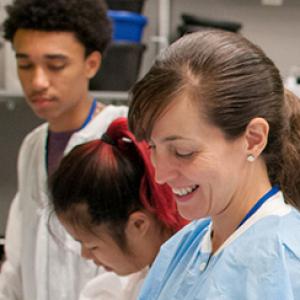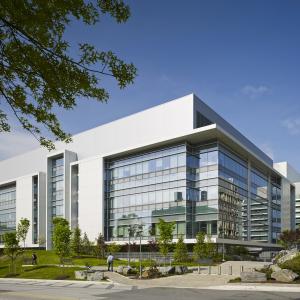NIDCD recognizes the importance of research training and career development opportunities to prepare a talented and diverse biomedical research workforce focused on communication disorders. NIDCD supports fellowship, career development, and mentorship opportunities at universities and institutions nationwide (extramural training) as well as at NIDCD laboratories and clinics in Bethesda, Maryland (intramural training). International research training opportunities are also available.
Staff Contacts
- Jaclyn Schurman, Au.D., Ph.D., Extramural Research Training Officer for Fellowship Programs (F Programs)
- Alberto Rivera‐Rentas, Ph.D., Extramural Research Training Officer for:
- Institutional Research Education Programs (R25)
- Institutional Research Training Programs (T32, T35)
- Mentored Career Development Programs (K)
- Loan Repayment Programs (LRP)
- Training-Related Administrative Supplements
- Elyssa Monzack, Ph.D., Deputy Scientific Director (for Intramural Research Training at NIDCD)






